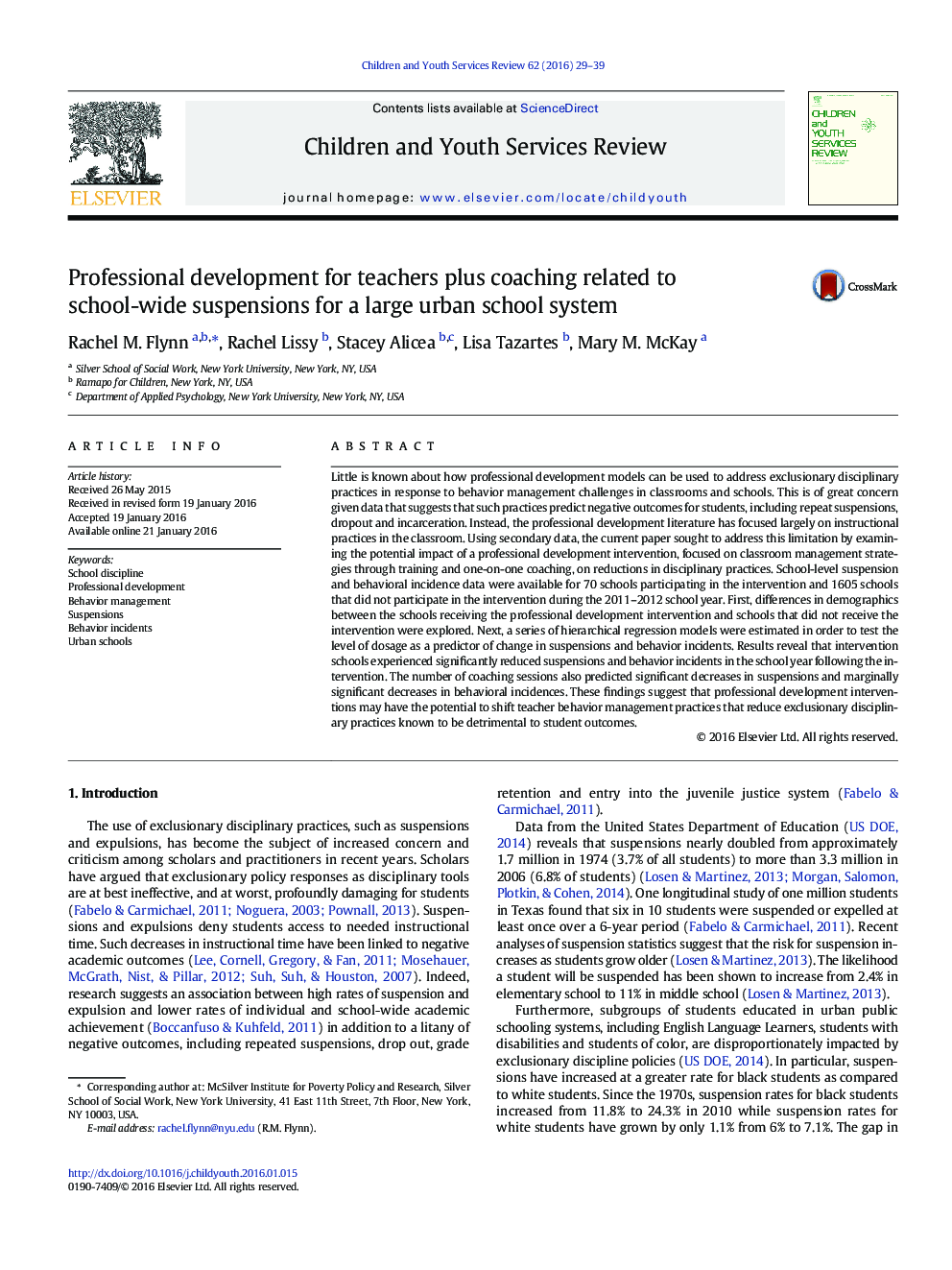| Article ID | Journal | Published Year | Pages | File Type |
|---|---|---|---|---|
| 6833824 | Children and Youth Services Review | 2016 | 11 Pages |
Abstract
Little is known about how professional development models can be used to address exclusionary disciplinary practices in response to behavior management challenges in classrooms and schools. This is of great concern given data that suggests that such practices predict negative outcomes for students, including repeat suspensions, dropout and incarceration. Instead, the professional development literature has focused largely on instructional practices in the classroom. Using secondary data, the current paper sought to address this limitation by examining the potential impact of a professional development intervention, focused on classroom management strategies through training and one-on-one coaching, on reductions in disciplinary practices. School-level suspension and behavioral incidence data were available for 70 schools participating in the intervention and 1605 schools that did not participate in the intervention during the 2011-2012 school year. First, differences in demographics between the schools receiving the professional development intervention and schools that did not receive the intervention were explored. Next, a series of hierarchical regression models were estimated in order to test the level of dosage as a predictor of change in suspensions and behavior incidents. Results reveal that intervention schools experienced significantly reduced suspensions and behavior incidents in the school year following the intervention. The number of coaching sessions also predicted significant decreases in suspensions and marginally significant decreases in behavioral incidences. These findings suggest that professional development interventions may have the potential to shift teacher behavior management practices that reduce exclusionary disciplinary practices known to be detrimental to student outcomes.
Related Topics
Health Sciences
Medicine and Dentistry
Perinatology, Pediatrics and Child Health
Authors
Rachel M. Flynn, Rachel Lissy, Stacey Alicea, Lisa Tazartes, Mary M. McKay,
